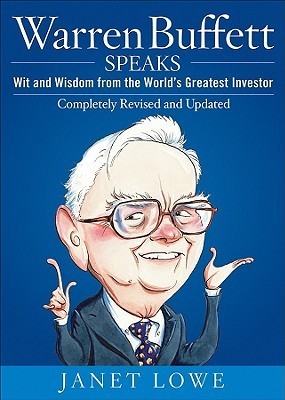
Poor Charlie's Almanack: The Wit and Wisdom of Charles T. Munger
Book Description
Wisdom isn't given; it's forged through experience, and nobody exemplifies this better than Charles T. Munger. With an acerbic wit and razor-sharp insights, Munger dives deep into the unfathomable complexities of life and business, revealing a treasure trove of strategies that can lead to unimagined success. From timeless principles of decision-making to the delicate art of character evaluation, this almanac is a masterclass in thinking differently. Each page is a provocative call to sharpen the mind and enrich the soul. What if the keys to a fulfilling life lie hidden within the very wisdom you've overlooked?
Quick Book Summary
"Poor Charlie's Almanack" is a compendium of Charles T. Munger’s wisdom, offering readers a window into the multidisciplinary thinking and mental models that have shaped his remarkable success as Warren Buffett’s business partner at Berkshire Hathaway. The book combines biographical anecdotes, transcripts of Munger’s public lectures, and his sharp-edged humor to distill practical advice on investing, decision-making, and living a worthy life. It emphasizes the necessity of lifelong learning, avoiding common thinking errors, and cultivating strong character and integrity. Munger urges readers to draw knowledge from a variety of disciplines, integrating them into a coherent worldview. This almanac is both a guidebook for wise living and a deeply entertaining collection of Munger’s most powerful ideas.
Summary of Key Ideas
Table of Contents
Multidisciplinary Thinking and Mental Models
Munger’s approach to solving problems and making decisions relies on what he terms ‘multidisciplinary thinking.’ By drawing insights from fields as diverse as mathematics, psychology, physics, history, and economics, he urges readers to construct a latticework of mental models. This interconnected web of ideas allows one to better understand reality and make superior choices. Munger constantly reinforces the importance of not being trapped within one discipline and instead building a toolkit from many areas of knowledge.
Avoiding Cognitive Biases
A central theme in the book is the avoidance of cognitive biases. Munger details the many ways humans can go wrong in their thinking, from confirmation bias to social proof and overconfidence. He advocates regularly examining and auditing one's own thinking to catch errors early. Practical examples from his investment career illustrate how recognizing and correcting cognitive distortions leads to better decision-making and fewer costly mistakes.
Lifelong Learning and Wisdom Accumulation
Lifelong learning is a recurring motif in Munger’s philosophy. He emphasizes reading broadly and voraciously, treating education as a continuous journey rather than a fixed destination. Munger credits much of his success to his curiosity and commitment to self-improvement, urging readers to develop the habit of constant learning. He views the accumulation of knowledge as a kind of compounding interest, with immense benefits accruing over time.
Ethics, Integrity, and Character
Ethics and character form the moral bedrock of Munger’s worldview. He argues that integrity, honesty, and reliability are non-negotiable traits for anyone aspiring to lasting success. Munger highlights the value of reputation, the importance of doing the right thing even when it’s difficult, and the dangers of rationalizing unethical behavior. These timeless principles, he insists, are essential for building both a prosperous career and a satisfying life.
Practical Investing Principles
Finally, Munger’s practical investing advice distills complex principles into actionable guidance. He champions simplicity over complexity, patience over impulsiveness, and discipline over speculation. Drawing from decades of experience, Munger’s reflections underscore the necessity of understanding what you own and only investing within your “circle of competence.” These principles, though rooted in finance, are applicable to decision-making in virtually any domain.
Download This Summary
Get a free PDF of this summary instantly — no email required.





